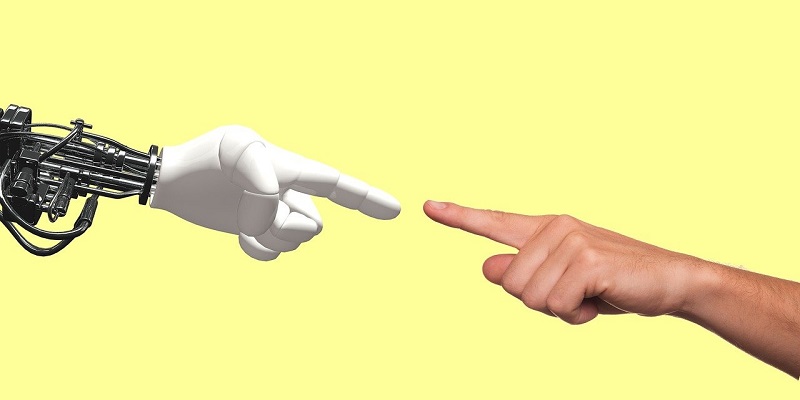In today’s fast-paced digital landscape, marketers are constantly seeking ways to stay ahead of the game and stand out from the competition. One powerful tool that has revolutionized the way marketing is done is the use of Artificial Intelligence (AI) and automation. When harnessed correctly, these technologies have the potential to upgrade your marketing strategy, enhance efficiency, and deliver personalized experiences. Let’s explore how AI and automation can transform your marketing approach.
The Potential of AI and Automation in Marketing Strategy
In the ever-evolving world of marketing, staying relevant and adapting to technological advancements is essential. By understanding and utilizing AI and automation, marketers can tap into a range of opportunities to enhance their strategies. From improving customer experiences to streamlining internal operations, the possibilities are endless.
Reduced Human Error and Increased Efficiency through Automation
The manual execution of repetitive tasks leaves room for error and consumes valuable time. The implementation of automation minimizes human error and increases overall efficiency. By automating processes such as data entry, lead nurturing, and campaign scheduling, marketers can focus on more strategic and creative initiatives, significantly improving productivity.
More Time for Impactful Tasks with Automated Marketing Chores
Marketing professionals often find themselves buried under a pile of routine tasks that drain their time and energy. However, with the assistance of automation tools, these tasks can be seamlessly handled in the background. This newfound freedom allows marketers to invest their time and effort into tasks that have a larger impact on their overall marketing goals and objectives.
Automating Personalized Customer Interactions Without Sacrificing Quality
Effective marketing is all about delivering personalized experiences that resonate with your target audience. With AI and automation, marketers can scale their efforts without compromising quality. By leveraging user data, demographics, and preferences, personalized interactions can be automated, ensuring that customers receive tailored messages and offers that address their specific needs.
Personalized Email Automation Using User Data
Email marketing continues to be a crucial component of any successful marketing strategy. AI and automation tools enable marketers to segment their customer base and create personalized emails that go beyond generic messages. By utilizing user data, such as names, preferences, and past purchases, you can send targeted emails that increase engagement and conversions.
Chatbots as Efficient and Prompt Customer Service Tools
Customer service plays a vital role in building brand loyalty and increasing customer satisfaction. Chatbots have gained popularity for their ability to provide immediate and accurate responses to frequently asked questions without the need for human intervention. By incorporating chatbot technology, marketers can ensure that customers receive prompt assistance, even outside regular working hours.
Boomi: An Exemplary Intelligent Marketing Automation Platform
Colorado-based integration platform, Boomi, serves as a prime example of the power of intelligent marketing automation. With its robust features and capabilities, Boomi empowers marketers to automate various aspects of their marketing campaigns, allowing for seamless integration across multiple platforms and channels. Boomi’s success story is a testament to the benefits that intelligent automation can bring to your marketing efforts.
The Importance of Staying Updated on Automation Trends
In an ever-evolving technological landscape, staying informed about the latest automation trends is crucial. Innovative tools and techniques emerge regularly, presenting opportunities for marketers to enhance their strategies. By keeping abreast of automation facts and trends, you can stay ahead of the competition and make informed choices about the automation tools that best complement your marketing objectives.
Filtering Out Buzzwords and Fluffy Trends for Effective Marketing
As with any industry, marketing is not immune to buzzwords and trends that may not always deliver meaningful results. It is essential to distinguish between fleeting fads and genuine tools that can boost marketing effectiveness. By thoroughly evaluating and filtering out fluffy trends, marketers can select the right automation tools that genuinely enhance their marketing efforts.
Achieving Success with the Combination of Automation and the Human Touch
While automation offers numerous benefits, it is important not to neglect the human touch. Maintaining a balance between automation and human interaction is crucial for establishing trust and building strong customer relationships. By leveraging AI and automation to handle repetitive tasks, marketers can devote more time to personalized and creative approaches, creating a powerful combination that drives successful marketing campaigns.
Incorporating AI and automation into your marketing strategy has the potential to revolutionize your approach, streamline operations, and deliver outstanding results. By capitalizing on these technologies, marketers can personalize customer interactions, automate marketing chores, and free up time for more impactful tasks. As the digital landscape continues to evolve, it is imperative to embrace the power of AI and automation to thrive in the highly competitive world of marketing.

